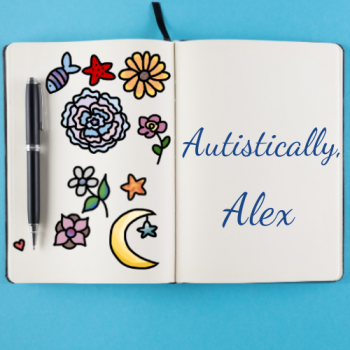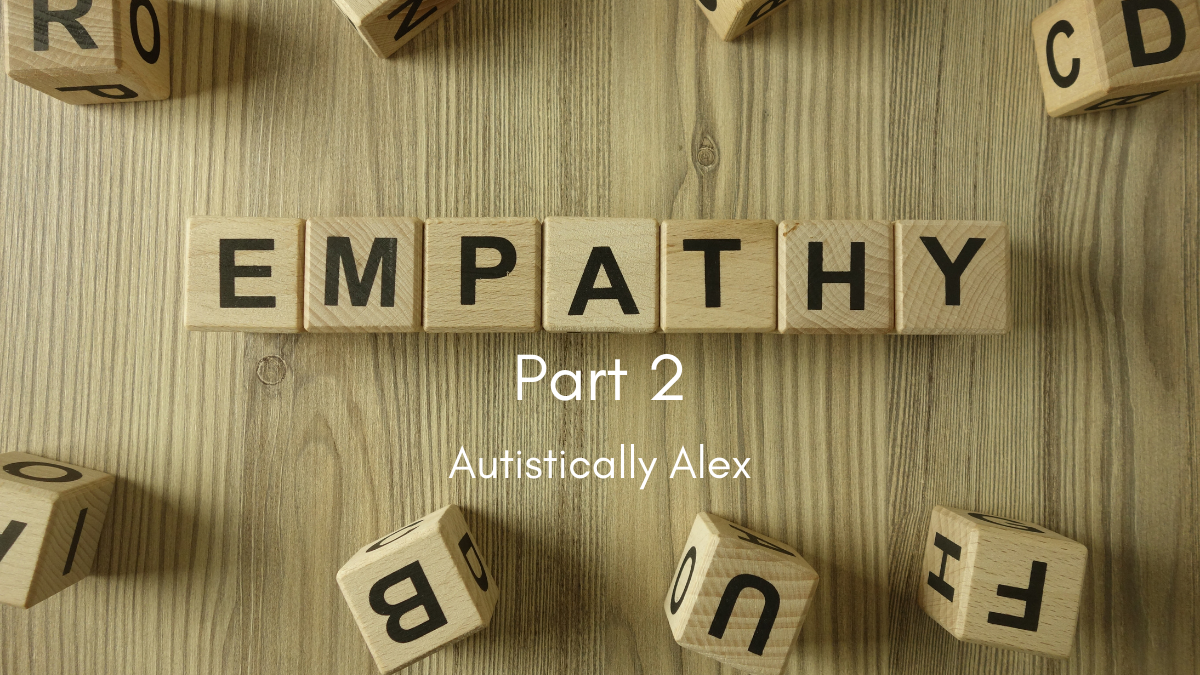Hyper-Empathy and My Media Choices
I began writing about my experiences as a hyper-empathetic Autistic person in 17: Empathy (Part 1) and quickly realized that I had too much to talk about in just one post. Today will continue my look at empathy–this time through the lens of my media consumption.
As I mentioned briefly in Part 1, I struggled a lot when watching TV or movies as a child until I realized that I was having extreme issues over-empathizing with characters or people on screen. If I’m being honest with myself I sometimes still struggle hugely with this, but I’ve learned to be much more selective with what I watch.
One clear example of this is the show “America’s Funniest Home Videos.” I know many of my readers aren’t from the US, so I’ll explain. On this show, viewers watch home videos sent in by other viewers and (hypothetically) laugh until they cry. My family used to watch the show pretty regularly. Some of the videos are adorable, others are sweet, and some are funny. But I realized after a while that I was really tense while watching and noticed I was most upset when certain kinds of videos came on. There are a good number of videos sent in of people slipping, falling, crashing, or otherwise hurting themselves on camera. I hate those!
I understand logically that probably no one was actually seriously hurt in these videos. I realize that people probably wouldn’t have sent them in if they had! I get that the person in question may even have found it funny themselves. But it doesn’t really matter. For me, there’s truly never been anything funny about a person in that kind of situation—even if they’re perfectly fine. The “funny” videos where someone dropped a birthday cake or scared their child while wearing a mask aren’t any better for me. I empathize too much and feel sad and guilty about the dropped cake or upset and betrayed by the parent who frightened the kid.
There are certain storylines in other shows and movies that I usually don’t enjoy watching either. One great example is the infuriating “barter” episode. The one where a character runs around for the entire episode trying desperately to reach some goal only to fall continually just short of it. Where a character has a priceless object —let’s say, a vase— that they want to trade for a famous baseball card while at a flea market. Unfortunately the baseball card collector has her fair share of vases at home and refuses…but mentions she would just love that shiny red action figure at the table next door. The main character rushes to the action figure collector who tells them they aren’t interested but really wants the antique music box sold by their competitor… The story goes on until our hero has traded their vase for a candelabra for a chess set for a Pac-man lunch box for a whole host of things… all until they get that shiny red action figure and go to the baseball card vendor, only to find that she just sold it. You know–the really, really frustrating and infuriating episode trope. That’s another example of something that’s meant to be entertaining but makes me incredibly anxious and upset.
I could go on and on with media: books, news, video games, movies, TV, music, etc. I have to be very careful about what media I consume for many reasons, but empathy is one major one. Watching the news has almost always caused me extreme anxiety or even panic attacks. Certain songs can send me quickly into a spiral of sadness and anxiety. Books can pull me into their pages and make me over-relate with characters who exist only in the ink on a page. Horror and gore are things I cannot stand, even a little. Disconnecting from or not engaging with certain types of media has been essential to my survival as a hyper-empathetic person.
Over time I’ve gotten better at both selecting media and at recognizing when I’m over-empathizing. These are some things that help:
- I don’t usually watch reality TV (well, that’s not just due to empathy…).
- I avoid depressing or distressing movies or shows.
- I mostly avoid going to the cinema (big screen=big impact, plus no pausing).
- I’m very selective when keeping up with the news.
- I remind myself during difficult scenes that actors aren’t really in the situations they act in.
- I mute dramatic music when I notice it affecting me in a scene.
- I do something else while I watch to ground myself in reality and disconnect more from onscreen emotions.
I’ve found that a healthy mix of avoidance and coping mechanisms means I can enjoy more media. I still tend to watch mostly children’s shows, cartoons and anime, and fantasy/scifi movies and TV though. The rest just don’t usually interest me and these genres pose less of a potential threat to my mental and emotional health.
So there you have it! This is another post that makes me feel vulnerable and I’m still processing why that is. Maybe because I’m tackling a stereotype that is still so widely believed. Maybe because I’m afraid people will see my sensitivity and empathy as weird or signs of weakness. Maybe because I’m afraid people will discredit and invalidate my experiences. I’m not really sure yet, but I also think it’s important for me to be honest and share true insight into the way I experience the world.
The next time I post about empathy, I want to focus more on the positive aspects of being hyper-empathetic!



3 thoughts on “18: Empathy (Part 2)”